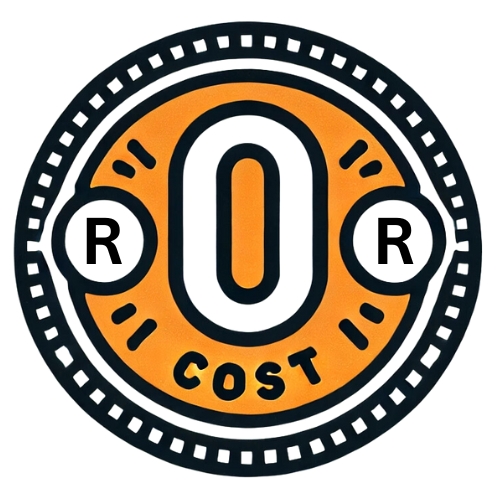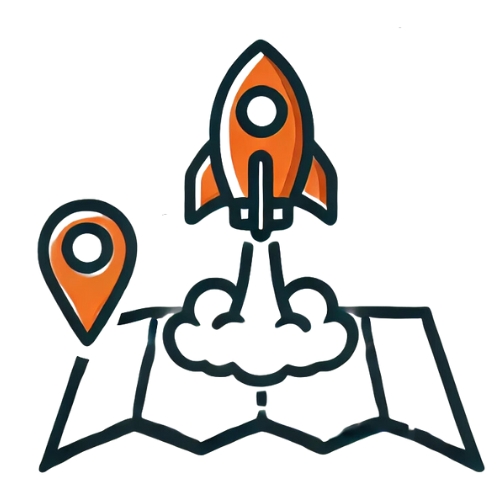
Starting a business without capital might appear daunting, but with resourcefulness, determination, and careful planning, it is possible. There are many ways to make the most of available resources, form partnerships, and apply your skills to launch your venture without needing significant upfront funding. Whether through bootstrapping, crowdfunding, or exchanging services, various options are available. So, how can you turn your idea into a successful business with minimal financial investment?
Key Takeaways
- Utilise Free Resources: Make use of free digital tools and networking opportunities to build your business and gain support.
- Strategic Planning: A well-thought-out business plan ensures effective use of resources and lays the foundation for future growth, even without initial capital.
- Overcome Self-Doubt: Taking action to counter self-doubt boosts confidence and reduces fears, paving the way for progress in your business journey.
About Arcadia Finance
Get your loan hassle-free with Arcadia Finance. Select from 19 reputable lenders, with no application fees and full compliance with South Africa’s National Credit Regulator, ensuring a smooth and reliable experience.
7 Steps to Starting a Business Without Initial Capital in South Africa

Keep Your Day Job
When you’re ready to launch a new business, the temptation to leave your current full-time position may be strong. However, giving up a stable income is risky, especially if you have little or no startup capital.
By keeping your job and using your spare time—whether in the evenings, on weekends, or during any free moments outside of work—for your entrepreneurial efforts, you can avoid dipping into your savings or relying on credit. This approach ensures a steady income, giving you more financial flexibility.
As your venture starts to grow and your earnings become sufficient to cover both your personal and business expenses, you might then consider reducing your work hours or leaving your job entirely.

Conduct Market Research
Before moving forward with your business idea, it’s important to assess its feasibility through thorough market research. Identify who your competitors are and determine your unique selling proposition—what distinguishes you, whether it’s faster service, better solutions, or affordability.
Organising focus groups and interacting directly with potential customers can provide valuable insights into their preferences, needs, and buying habits. Additionally, make good use of social media and online reviews of similar businesses to gather more information.
If you’re considering different financial avenues to support your business idea, exploring startup loans in South Africa can be a practical step. These loans are designed to provide the seed money needed to get your business off the ground, offering potentially favourable terms for new entrepreneurs.

Develop a Comprehensive Business Plan
With insights into your business venture, the next step is to formalise your strategy with a comprehensive business plan. This document should outline both short-term and long-term goals, operational details, product or service descriptions, and an in-depth market analysis.
If you’re new to creating business plans, many free online resources and templates can assist you. Ensure your business plan is clear and actionable, serving as a practical guide for launching and growing your business. This plan will not only help you set specific goals and estimate startup costs but also act as a roadmap for managing expenses and making informed decisions about additional investments or funding opportunities.

Identify a Zero-Cost Business Idea
The first step in starting your own business is developing a concept. If you’re looking to start a business in South Africa but have limited financial resources, here are several no-cost business ideas to consider:
Dropshipping Dropshipping is an ideal model for those wanting to enter the retail space without significant investment. In this setup, the supplier manages the inventory and ships orders directly to customers, allowing you to operate without handling physical products.
Service-Based Enterprise Utilise your existing skills by offering services such as consulting, virtual assistance, or graphic design. This path requires minimal upfront costs but can generate substantial returns through client work.
Print-on-Demand Business Model With print-on-demand, your designs are printed on products like books or clothing only after a sale is made, reducing the need for inventory and minimising risk.
Sell Handmade Crafts If you have a knack for creating, consider selling your handmade crafts online. Platforms like Etsy offer a marketplace to reach a broad audience interested in unique, artisanal items.
Spark your creativity with a list of start-up ideas in South Africa that require low initial investment but hold the potential for significant growth.

Overcoming Self-Doubt
If self-doubt isn’t holding you back and you’re ready with one or more business ideas, you can proceed to the next step. However, if self-doubt is a challenge, remember that you’re not alone. Many people struggle with negative thoughts, especially when starting a new business.
It’s common to worry about whether your idea will be well-received, if your products will sell, or if others might judge your business harshly. Concerns about financial failure or facing criticism are also normal.
These doubts are common among aspiring entrepreneurs. One effective method for managing self-doubt is to hold off on judging your idea until after it’s been launched. Often, doubts intensify when ideas remain untested but tend to diminish once you’ve taken action. The more you share your ideas with the public, the easier it becomes to manage self-doubt.
This process is similar to any challenging endeavour in life. For example, if you aspire to be an award-winning actor, you’d expect to take acting lessons, gain experience, and continuously improve your skills. Starting a business, or creating anything new, follows a similar path. Begin without striving for perfection, knowing that each step you take builds your confidence and reduces your doubts.

Conduct a Pilot Test
Even if you have a legal framework, chosen business name, and marketing plan in place, it’s wise to conduct a small-scale local launch before expanding further. This initial step allows you to identify potential challenges and refine your approach accordingly. During this pilot phase, actively seek honest feedback from customers on how to improve your products or services. This process often uncovers unexpected issues, helping you reduce the risk of failure as you move forward.

Manage Growth Carefully at the Start
In the beginning, it’s tempting to launch with an extensive marketing and promotional strategy, aiming for widespread media coverage and rapid visibility. However, this approach can be premature for a new business.
The initial phase should focus on refining your business based on feedback from your first customers. Concentrate on perfecting your product or service to the point where these early customers naturally help attract others through word-of-mouth. If this isn’t happening, it’s a signal that your offering may need further improvement.
Remember, no amount of marketing or public relations can match the power of word-of-mouth. Focus on creating a product or service that genuinely encourages conversation and sharing. If your business isn’t generating this level of interest, it may be time to reassess where your efforts are being directed.

5 Best Businesses to Start with No Money
Content Creation
By taking on roles such as an influencer or social media expert, you can build a profitable business by producing consistent, engaging content that attracts a significant following. This audience can then be monetised through various channels, including merchandise sales, affiliate marketing, brand sponsorships, sponsored content, participation in TikTok’s Creativity Program, and offering exclusive content on platforms like Patreon. Starting this venture requires nothing more than your time and creativity.
Podcasting
Podcasting in South Africa is a venture driven more by connections than by capital. The key to success is producing quality content, which could involve interviewing influencers or sharing your own expertise. Monetisation can come through podcast subscriptions, donations, sponsorships, affiliate marketing, and selling your own merchandise. Initial costs are minimal, potentially requiring only a decent microphone and hosting services.
Freelancing & Consulting
With a marketable skill, a computer, and an internet connection, you can start freelancing or consulting. This sector covers areas such as virtual assistance, writing, programming, design, and more. Although having a portfolio website can enhance credibility, it’s not essential to start. Effective networking can lead to a steady increase in clients and, as a result, income.
Blogging
Starting a blog requires minimal upfront costs but offers significant long-term revenue potential. Instead of relying on third-party platforms, investing in a personal website gives you greater flexibility for monetisation through e-commerce, affiliate marketing, advertisements, donations, and memberships. A basic setup, including hosting and domain registration, can be established with a modest annual investment.
Teaching, Instructing, & Tutoring
By focusing on educational content, you can create courses or offer tutoring in areas such as mathematics, writing, or second languages. Starting small, with short courses or individual tutoring sessions, allows you to gauge demand and refine your approach. This can later expand to include substitute teaching, sports coaching, or arts instruction, potentially at local schools or community centres, with no costs beyond your time.
Starting a business without capital might seem daunting, but understanding your financial position is key. Knowing what are Financial Indicators can help you assess market opportunities and manage costs effectively.
Advantages and Disadvantages of Starting a Business Without Money
Advantages
- Creative Thinking: Limited funds often push entrepreneurs to think creatively, leading to unique business models and strategies that might not have been considered if money were readily available.
- Efficient Operations: Operating on a lean model means focusing on essential activities that generate revenue, avoiding unnecessary expenditures.
- Complete Control: Without outside funding, you retain full control and ownership of your business, allowing you to make decisions that align with your vision.
- Personal Development: The challenges of starting a business without funds can accelerate your personal growth, providing valuable lessons in all aspects of business management.
- Business Model Validation: Successfully attracting customers and generating revenue without significant capital validates the inherent value of your business idea.
Disadvantages
- Resource Limitations: The most obvious drawback is the lack of resources, making it difficult to invest in marketing, inventory, hiring, or business expansion, which can limit growth opportunities.
- High Stress and Uncertainty: Managing cash flow and income uncertainty without financial padding can be highly stressful and challenging.
- Slower Growth: The absence of capital for growth initiatives may lead to slower business growth, which can be frustrating and might allow competitors to gain market share more quickly.
- Attracting Talent: Limited funds can make it difficult to attract and retain skilled employees, as they often seek competitive salaries and benefits that a cash-strapped startup might struggle to offer.
- Increased Risk of Failure: The risk of failure is higher without financial reserves, as unexpected expenses or slow sales periods can be difficult to manage, potentially leading to business closure.
Your old collectibles, like coins, could be a hidden goldmine to fund your startup. Learn more about the value of these items in our detailed guide on ‘Most Wanted Old South African Coins For Cash’, and uncover how your old coins might just be the seed money you need for your entrepreneurial dreams.

Common Obstacles and Strategies for Starting a Business Without Money
Here’s a comprehensive table outlining the common obstacles of starting a business without money, along with potential strategies to overcome them and the impact of not addressing these issues effectively:
| Obstacle | Strategy to Overcome | Impact if Not Addressed |
|---|---|---|
| Cash Flow Management | Strict budgeting and cash flow forecasting; pre-payment models to boost initial cash flow. | Can lead to business instability or failure due to inability to cover basic operational costs. |
| Limited Marketing Budget | Leverage free or low-cost marketing channels such as social media, content marketing, and word-of-mouth. | Reduced market visibility and slower customer acquisition, impacting potential sales. |
| Difficulty in Securing Funding | Prepare a solid business plan to attract angel investors or consider crowdfunding platforms to demonstrate market interest. | Limits expansion opportunities and can restrict operational capabilities, stifling growth. |
| Scaling Challenges | Focus on building a strong customer base and look for strategic partnerships that can offer resources or infrastructure support. | Inability to meet customer demand may lead to lost sales and damage to reputation. |
| Resource Constraints | Optimise operations by using free tools and software; barter services with other businesses. | May result in inefficiencies, lower quality of service or products, and higher operational stress. |
Conclusion
Starting a business without capital might seem overwhelming, but with the right mindset and approach, it’s a challenge you can overcome, especially in South Africa. By using free resources, tapping into your skills, and embracing low-cost business models, you can begin your entrepreneurial journey even with limited funds. Whether you’re offering services, selling handmade goods, or launching an online store, the key is to stay resourceful and determined. With careful planning and a focus on building a strong foundation, you can gradually grow your business, turning your vision into reality despite financial constraints. Are you ready to take the first step towards starting your business without stretching your budget?
Frequently Asked Questions
Yes, it’s possible to start a business without upfront capital by utilising free resources, employing creative strategies like bartering, and focusing on service-based or digital business models that require minimal financial investment.
In South Africa, service-based businesses, dropshipping, print-on-demand, freelancing, and digital products like eBooks or online courses are ideal for entrepreneurs with limited funds.
You can generate income quickly by focusing on services with immediate demand, negotiating shorter payment terms, and reinvesting early earnings back into your business to support growth.
Yes, options include crowdfunding, small business loans, personal loans from friends or family, angel investors, and small business grants specifically available to South African entrepreneurs.
It’s often advisable to keep your full-time job while starting your business as a side hustle, allowing you to maintain a steady income while gradually building your venture and reducing financial risk.
Fast, uncomplicated, and trustworthy loan comparisons
At Arcadia Finance, you can compare loan offers from multiple lenders with no obligation and free of charge. Get a clear overview of your options and choose the best deal for you.
Fill out our form today to easily compare interest rates from 16 banks and find the right loan for you.


